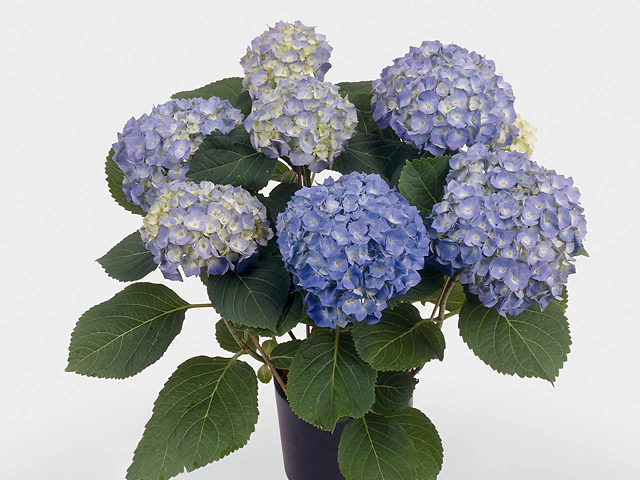Hydrangea macrophylla 'Renate Steiniger'

| soil pH requirement | Neutral (pH 6,5 - 7,5); Slightly acidic (pH 4,5 - 6,5); Alkaline (pH > 7,5) |
| Light conditions | Sunny; Semi-shades |
| Toxicity (if consumed) | Not or barely |
| Moisture requirements | Moist; Well-drained |
Hydrangea macrophylla 'Renate Steiniger' is a versatile and low-maintenance flowering shrub that can add beauty and charm to any garden or landscape. With its striking and vibrant blooms, it is no wonder that this hydrangea variety is highly sought after by both experienced and novice gardeners.
One important aspect to consider when planting and caring for this hydrangea is the soil pH requirement. 'Renate Steiniger' thrives in a neutral pH soil, which ranges from 6.5 to 7.5. However, it can also tolerate slightly acidic soil with a pH of 4.5 to 6.5, as well as alkaline soil with a pH higher than 7.5. This flexibility allows gardeners to enjoy this stunning plant in a wide range of soil conditions.
When it comes to light conditions, this hydrangea variety can adapt well to both sunny and semi-shaded areas. It can handle full sun exposure for a few hours a day, but it also appreciates some shade during the hottest parts of the day. This makes it a great choice for different areas of the garden, ensuring you can find the perfect spot to showcase its beauty.
One concern for many gardeners is the toxicity of plants, especially if there are children or pets in the household. Fortunately, this hydrangea variety is not toxic or barely toxic if consumed. However, it is always advisable to keep an eye on children and pets to ensure they do not attempt to eat any part of the plant.
In terms of moisture requirements, 'Renate Steiniger' prefers a soil that is consistently moist but well-drained. It is important to avoid overwatering or letting the soil become waterlogged, as this can lead to root rot and other issues. Regular watering, especially during dry periods, and good drainage are essential to maintain a healthy and thriving hydrangea.
To maintain the beauty and health of this hydrangea variety, regular pruning is recommended. Prune it in late winter or early spring before new growth appears, removing any dead or damaged branches to promote new growth and flowering. Additionally, removing spent flowers can encourage the development of new blooms.
In conclusion, Hydrangea macrophylla 'Renate Steiniger' is a stunning and adaptable plant that can thrive in various soil pH conditions, light conditions, and moisture levels. Its non-toxic nature makes it a safe choice for households with children and pets. With proper care, including regular watering and pruning, this hydrangea can brighten up any garden or landscape with its vibrant and eye-catching blooms.
Market availability index by month:
| Jan. | Feb. | Mar. | Apr. | May | Jun. | Jul. | Aug. | Sep. | Oct. | Nov. | Dec. |
|---|---|---|---|---|---|---|---|---|---|---|---|
| - | - | - | 1 | 1 | - | 4 | - | - | - | - | - |